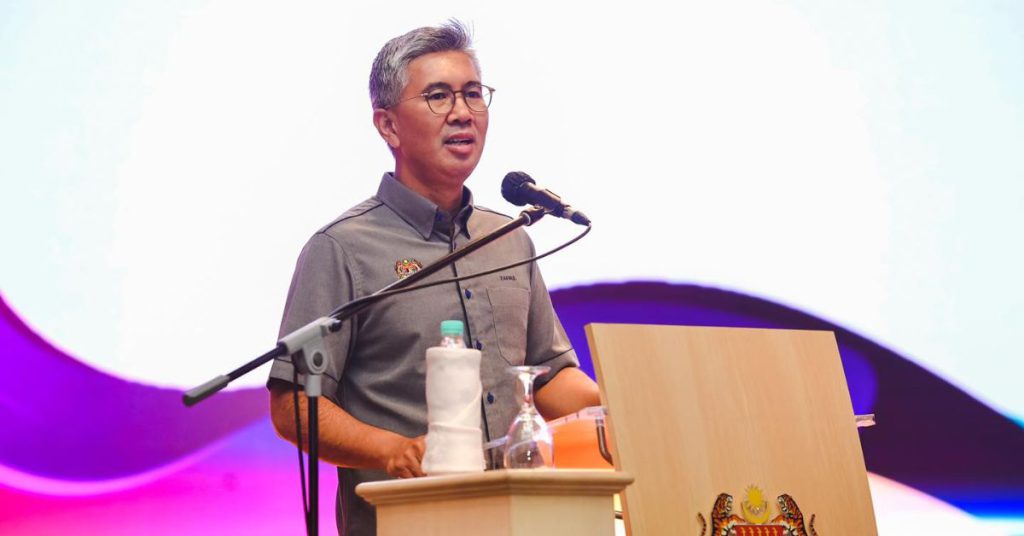During the Budget 2023 tabling on October 7, 2023, Finance Minister Tengku Zafrul Aziz announced an allocation of RM372.3 billion.
This is an RM40.2 billion increase compared to the RM332.1 billion allocated for Budget 2022 last year.
Approximately RM272.3 billion has been allocated for operational expenditures, while RM95 billion will go to development.
Here’s what employers, employees, and the self-employed in Malaysia can expect from Budget 2023.
1. Personal income tax reduction
Those earning between RM50,001 to RM100,000 will have their personal income tax reduced by 2%. This is geared to benefit over one million people in the M40 income bracket.
The taxable income range of RM50,001 to RM70,000 is reduced from 13% to 11%, and the income range of RM70,001 to RM100,000 is reduced from 21% to 19%.
2. Income tax exemptions for women returning to work
There will be income tax exemptions for women returning to the workforce between 2023-2028.
3. Incentives given to employers to hire youths
Despite our many graduates from higher education institutions, Tengku Zafrul reported that about 11% of our youth is still unemployed as of Q2 2022. Thus, SOCSO will provide incentives for employers to hire jobless youths.
This will be applied to youths between the ages of 18 to 30, who’ve been unemployed for over three months, and to graduates of Pendidikan Teknikal Dan Latihan Vokasional (TVET).
4. Voluntary EPF contributions raised
Voluntary EPF contributions will be raised from RM60,000 to RM100,000 next year. The government will also expand the scope of insurance premium tax relief or Life Takaful contribution up to RM3,000.
5. Improvements to the i-Saraan programme
Extending the duration of i-Saraan for the next year, RM30 million will be allocated to improve it with the aim of benefiting 100,000 people. This was a similar budget given to last year’s initiative. The matching contribution will be increased from RM250 to RM300.
6. The self-employed must contribute to SOCSO starting 2023
In stages from next year onwards, all self-employed persons will be required to contribute to SOCSO’s Skim Keselamatan Sosial Pekerjaan Sendiri (SKSPS), especially those in higher-risk professions.
These include those in the public transport and food or package delivery sectors.
The government will subsidise 80% of the contribution value, thus, the self-employed doing food delivery, farming, fishing, creative freelancers working with Finas, and traders will only have to contribute 20%.
RM150 million will be allocated for this, and it is extended to taxi drivers and gig workers in the technology and information sector.
7. SOCSO incentives for employers to hire more
SOCSO will provide incentives for employers to hire the disabled, Orang Asli, ex-convicts, and women returning to work.
The incentive that’s worth RM600 up to RM750 per month will be given for three months per employee. In total, RM150 million will be allocated for this, and it’s expected to benefit 70,000 job-seekers.
8. Mobility assistance from PERKESO
RM500 will be granted to those who find work outside of their residential state, while RM1,000 will be given to those from Sabah and Sarawak who travel to Peninsula Malaysia for work.
9. MyStep programme to provide 50,000 jobs
The MyStep programme will provide 50,000 jobs including 15,000 in the public sector and 35,000 in GLCs.
10. Worker upskilling initiative
RM750 million will go to upskilling 800,000 workers, courtesy of HRD Corp. In 2022, this initiative got an allocation of RM1.1 billion targeting 220,000 trainees to undergo various upskilling and reskilling programmes.
11. Tax deductions for employers hiring former juveniles
There will be additional tax deductions for employers who hire former residents of The Henry Gurney Schools, shelter homes, juvenile detention centres, and those who’ve left JKM.
12. Income tax reduction for micro-SME operators
There will be a 2% reduction in the income tax of micro-SME operators, from 17% to 15%, for the first RM100,000.
13. DE Rantau programme to support professional mobility
Exclusive to digital nomads, which are defined as digital freelancers, independent contractors, or remote workers, the DE Rantau programme aims to establish Malaysia as the preferred digital nomad hub.
It’s meant to boost digital adoption, and promote digital professional mobility, along with uplifting tourism across the nation. Read more about its benefits for local digital nomads here.
- Read more of our Budget 2023 coverage here.
- Read what Tengku Zafrul had to say about what to expect from 2023’s finance industry here.
Featured Image Credit: Tengku Zafrul
